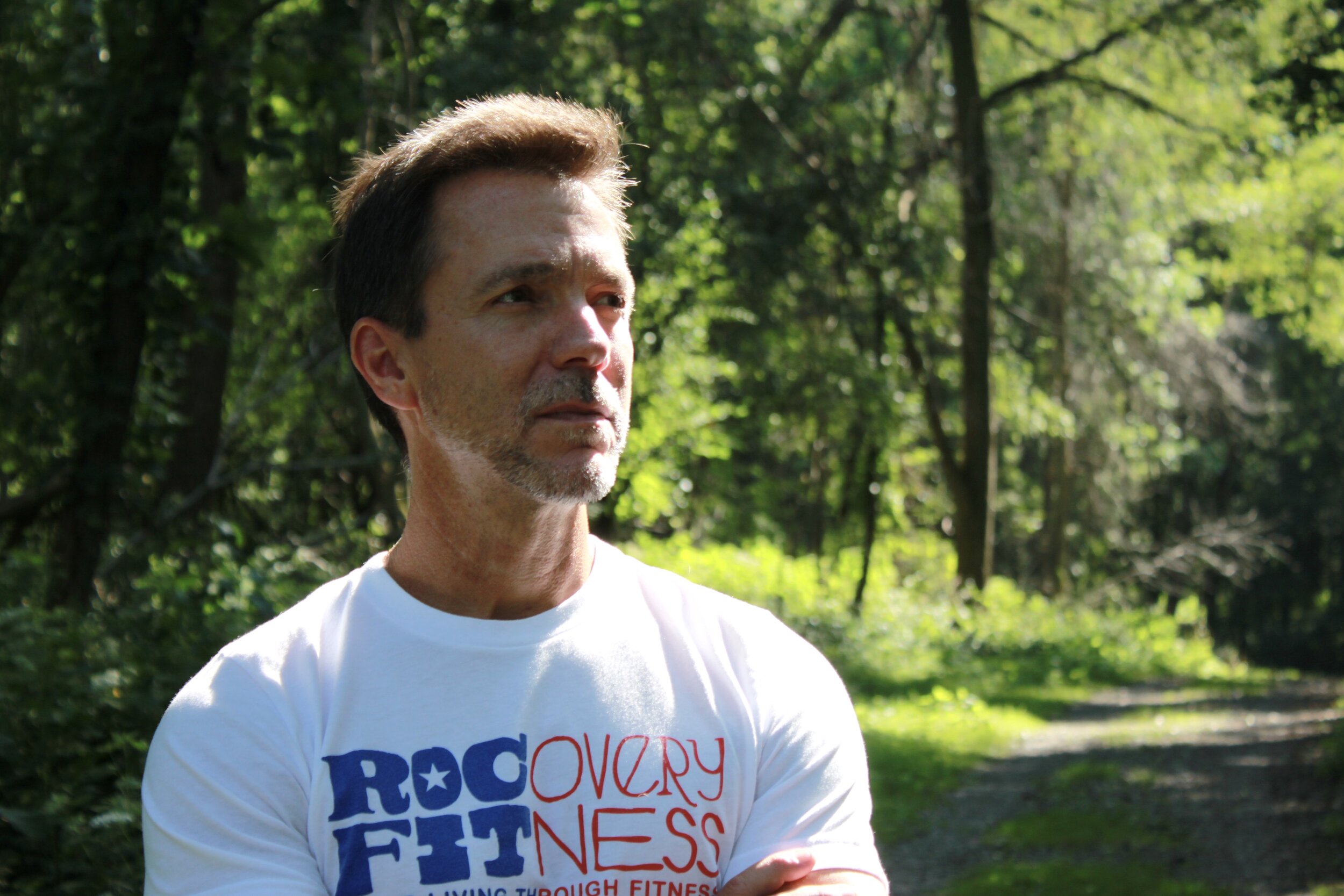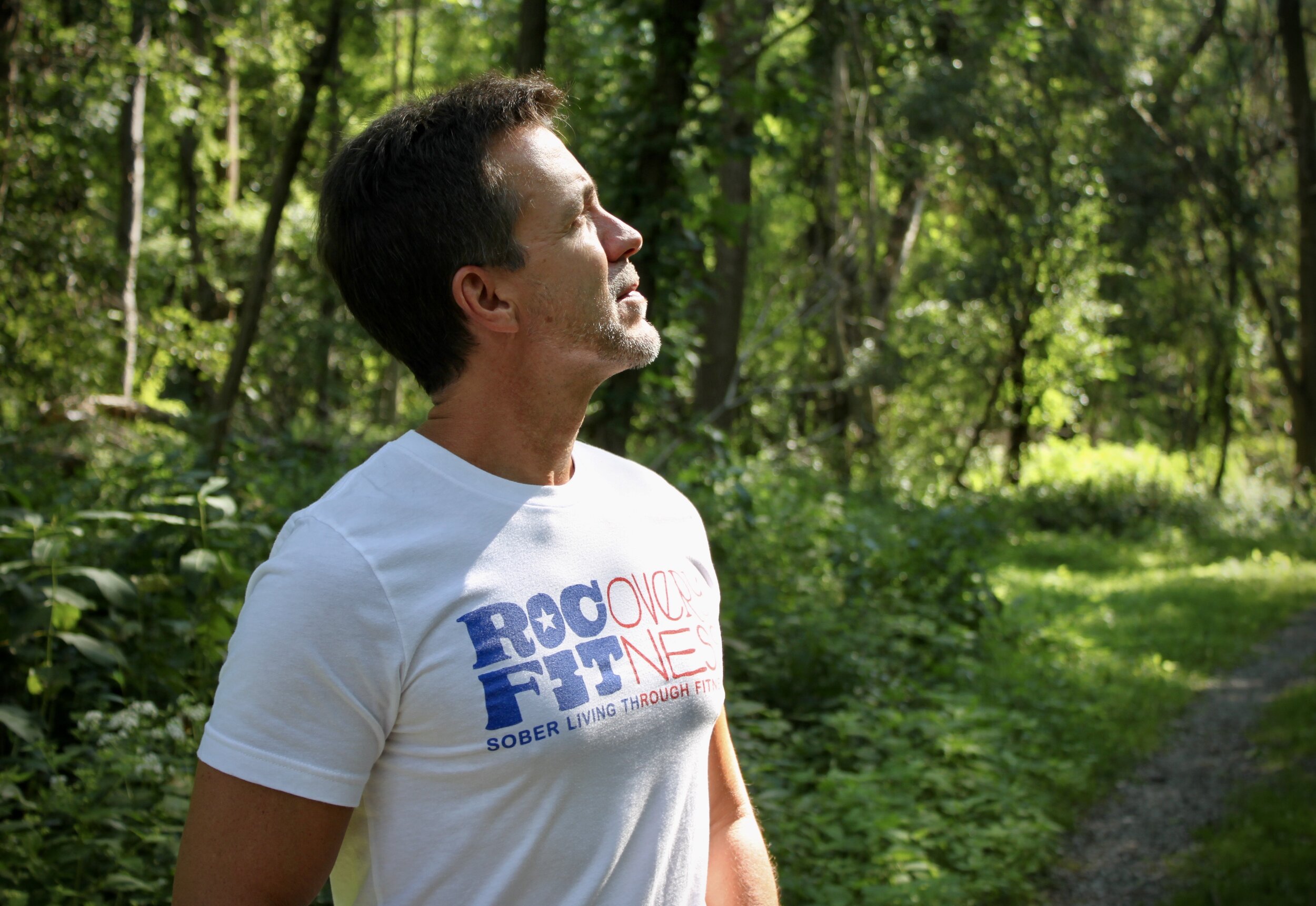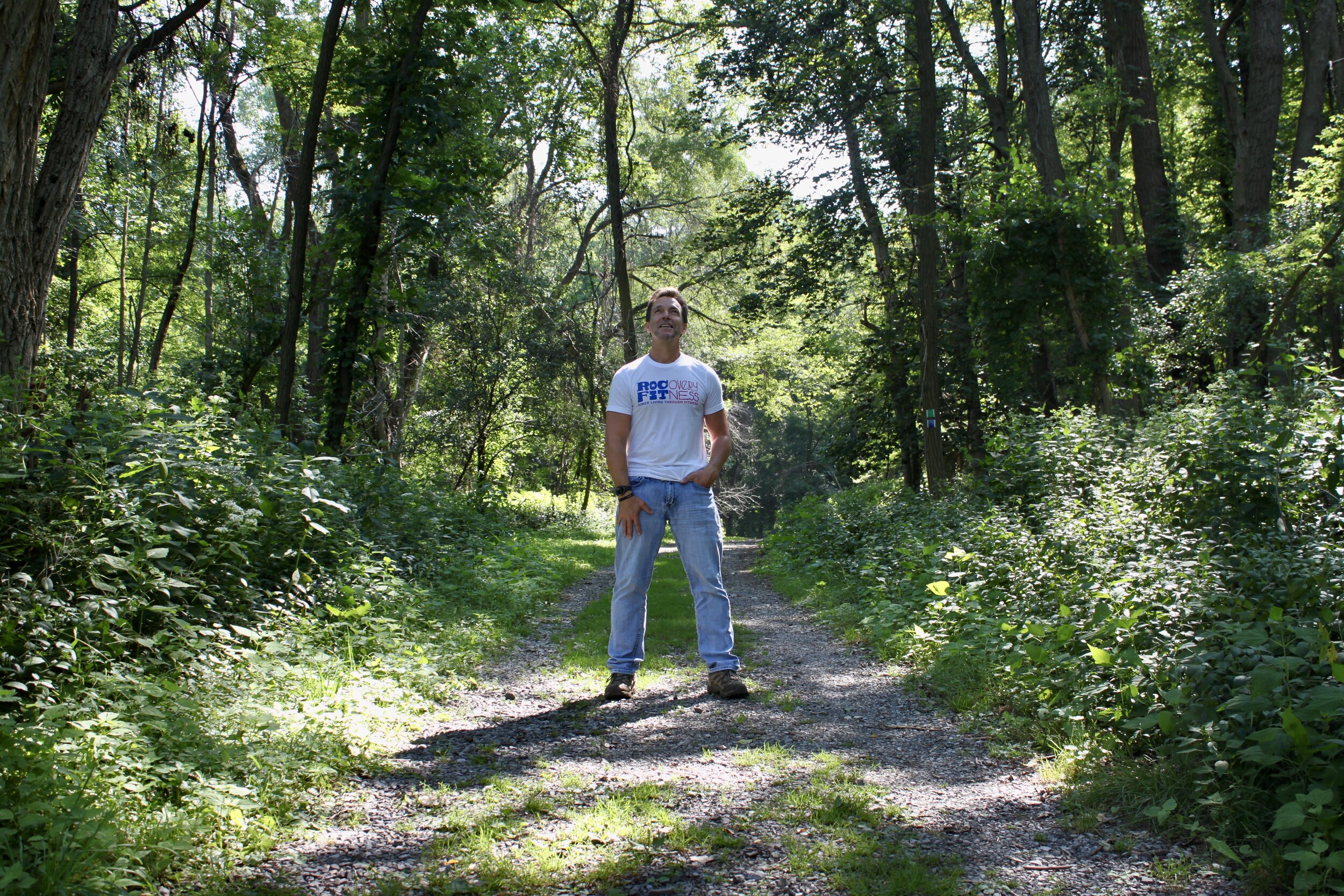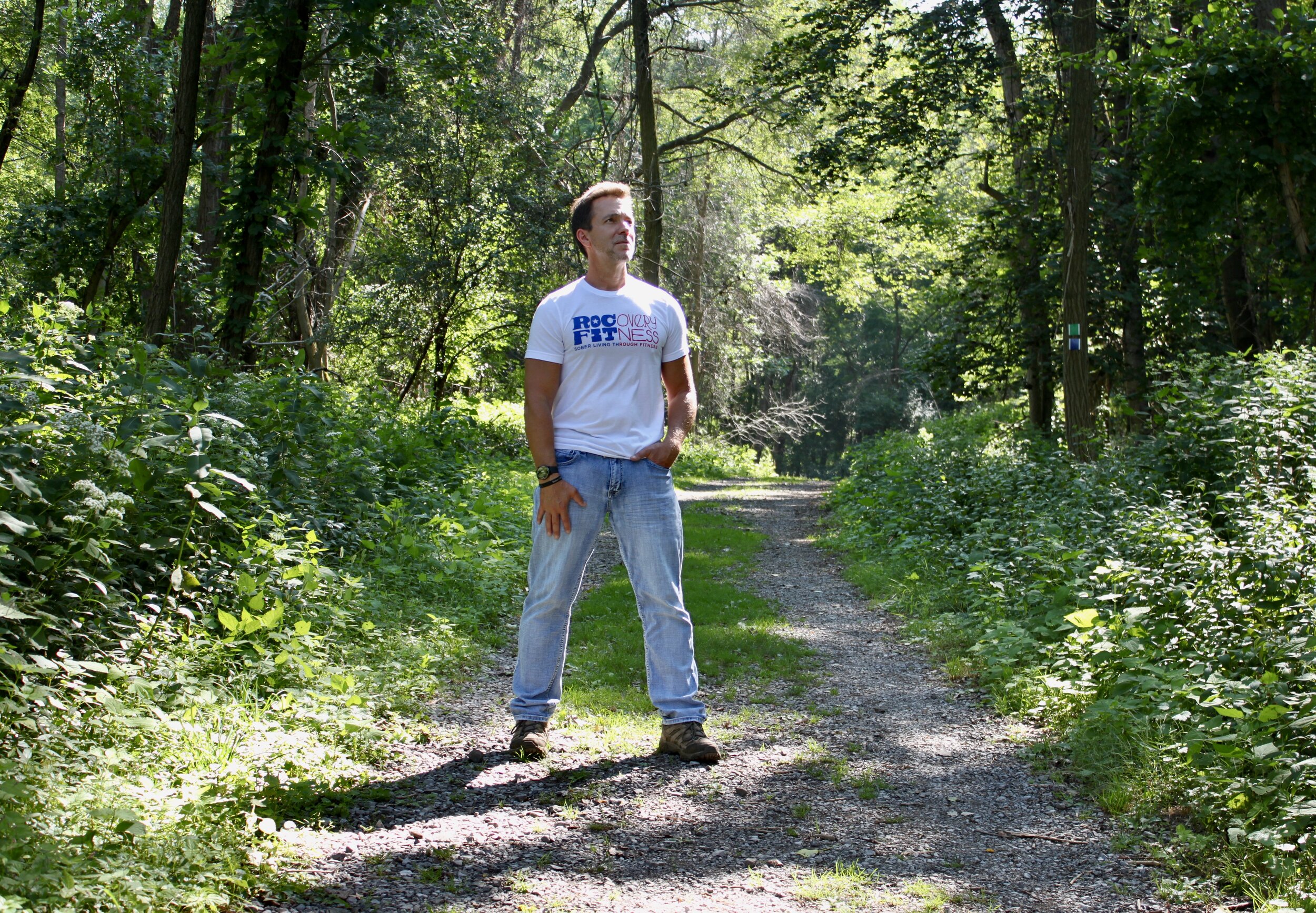Jon Westfall
“The first thing I tell people who are struggling is “There is ALWAYS hope” because there’s no more hopeless feeling in the world than to feel out of control of your own life. Where there is breath, there is hope and we DO recover. If recovery is possible for ME, it’s possible for anyone.”
NAMI: Have you ever had any mental health struggles? Do you live with a diagnosis?
JW: I have had my personal struggles in the past with mental health issues as they related to my alcohol and substance use primarily. I have sought mental health counseling and heave engaged in therapeutic resolution to my struggles as well as engaging in therapy today as well. I do not live with a diagnosis, but have been evaluated in the past due to precautionary measures as sever mental health issues are common in my family history. Most of my struggles with mental health have come from witnessing close family members suffer through severe, acute and chronic conditions.
NAMI: What is your experience with substance use disorder? What events led to your path of sobriety?
JW: I have had a long history with Alcohol and Substance Use Disorder dating as far back as my pre-teen years; I started out very young. Unfortunately there were many years of consequences and unsuccessful attempts at recovery (what I only ever heard it called was “sobriety”). No consequence, it seemed was severe enough to make me want to change enough to break the cycle of my dis-ease, until it hit close to home in some people very close to me, that I love very much. That caused me to take a more serious and honest look at my own patterns of use and behavior and ultimately wanting to help them, made me want to also help myself. When it strikes someone you love so hard and all you want to do is to help them get better, I had no choice but to look at myself and decide if I was going to continue to suffer as well, or perhaps model a better way of living a life in recovery.
NAMI: How long have you been in recovery from SUD? What does recovery mean to you? What does it look like?
JW: It’s funny, but I often tell people that I feel like it is not so much the length but the depth of your recovery that really matters, but I also understand the desire to celebrate these benchmarks to be able to look at our accomplishments and see how far we have come. God willing, I will celebrate 5 years in recovery on February 27 of 2022. That comes after more than 25+ years of being able to only piece together maybe 6-9 months at most without a drink or a drug before I would be right back to it again. Recovery to me means that we are present for our lives and for others in our lives through the good and the bad, and not trying to escape it by other means. To be there for the good stuff as well as the “bad”, no matter how awkward, uncomfortable or down right unbearable it might be. To be able to accept life as the wonderful mess that it is, and not try to force MY will on it to make it what I think it should be. To have the love and TRUST of close friends and family who know they can count on you to show up and do whatever it takes. To have people look up to you, even though you’ve screwed up; Owning that and learning from it and saying “next time I will do better” and today I AM better for having screwed up and I’m not afraid of anyone finding out exactly how far I had fallen, because it might help someone else. It looks like giving hope to those who have lost all hope through a life that is a testimony that recovery IS possible—for anyone!
NAMI: For many, relapse can be a part of recovery. Have you ever returned to use or come close? What factors/supports do you think help prevent a return to use?
JW: It CAN BE a part of the process. It doesn’t HAVE to be. As I’ve said… for 25+ years, it was my modus operandi! It was what I did on a regular basis. I think when we start to feel better (and I know this is the case not just with SUD, but with mental health and many forms of chronic illness) we start to feel like “I’ve got this” and I can stop doing the things I did to get better. Whether it’s a medication or a behavioral modification or a recommended physical therapy to heal an injury, and we wind up right back where we started—or worse! For me, what helped was to build relationships in a community of others who were doing the things that I enjoy doing and normalizing a life where sobriety was the norm not the exception. Coincidentally (if you believe in coincidence) I happened to find this community about 6 months into my path of sustained recovery (where I would typically “fall off”).
NAMI: Do you think our community provides adequate support and resources to folks living with substance use disorder? How could we improve?
JW: I truly feel like our community has come a LONG way in providing support and resources in the time I have been involved in the recovery support field, but with that said, there is SO MUCH more that could and needs to be done. We need to better fund grossly underfunded programs that employ PROVEN methods of recovery support within the continuum of care from prevention to treatment through recovery. Community-based programs that employ peers to walk along side and provide support to those struggling to rebuild their social supports that are often destroyed through their active addiction, are an essential element to community reintegration. For many people coming from institutions whether they be incarceration or treatment or long-term medical rehabilitation, we often just release people, newly sober right back into the same (or worse) environments where their unhealthy patterns had developed with nothing more than a flyer or some phone numbers to call as a “safety plan”. We need sober supportive housing in communities where people can feel safe and supported in order to heal and learn new coping skills and build (sometimes for the very first time) lasting, rich relationships with others.
NAMI: It’s getting better, but there is still stigma associated with addiction and SUD — mainly that it’s “a choice” and/or that it’s “selfish." At NAMI, we believe that substance use disorder is a mental health condition. We also know that individuals with SUD almost always live with a dual diagnosis (depression, anxiety, etc.) or trauma. How do you work to combat stigma at Rocovery and in the community at large?
JW: We recover OUT LOUD! We are very public and vocal about our recovery and our past struggles. We don’t shame people when they experience a recurrence of the symptoms of the very illness that they are recovering from. We welcome everyone through our doors whether it is their first or five thousandth time. We normalize social awkwardness and make it “ok”. We have holiday dinners and picnics and events to give someone a safe place to be and to go when the environment they have for those times is not always the best. We empathize because we’ve been there (or still are in some cases). We advocate for those still suffering with addiction and mental illness in community forums, with local politicians, in the media, at local, state and federal advocacy events… We never stop because we know how devious and how powerful stigma can be—stigma kills people.
NAMI: If someone who is struggling with addiction is reading this, what would you tell them? If someone wants to get sober, what’s a good place to start?
JW: The first thing I tell people who are struggling is “There is ALWAYS hope” because there’s no more hopeless feeling in the world than to feel out of control of your own life. Where there is breath, there is hope and we DO recover. If recovery is possible for ME, it’s possible for anyone. And if you are struggling, an evaluation is always a good place to start to see if a treatment program is right for you. Not EVERYONE needs treatment, but if it’s indicated for you, it’s the best place to start and we will go from there and stay connected to you through the entire process. We have a wonderful resource in Rochester and it’s called Open Access and they are a 24/7 walk-in (or call-in) treatment evaluation center and you can get help immediately. They are located at 835 W Main St, Rochester, NY 14611 and their phone number is (585) 627-1777. And if that is too big of a step, you can always reach out to us and one of our Outreach & Engagement Specialists can talk with you to see what kind of non-clinical support you might most benefit from receiving from us and we can walk along with you through the process and be here throughout and beyond. There is no “cycle of engagement” with our OES, as we don’t bill for services we support you for as long as you see the benefit. They can either call the center at 585-484-0234, or email our Peer Support Program Manager, Kara Izzo at kara@rocoveryfitness.org




